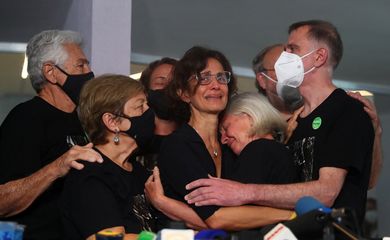Federal Police name man who ordered Amazon killings

Brazil’s Federal Police have concluded that Rubens Villar Coelho, known as Colômbia, is the mastermind behind the deaths of indigenous expert Bruno Pereira and British journalist Dom Phillips, murdered in the Vale do Javari region of Amazonas state, early in June last year.

In October, Colômbia had been granted provisional release after posting bail of BRL 15 thousand.
However, in December, he was arrested again for breaking the terms of his provisional release. The information was reported Monday (Jan. 23) by the superintendent of the Federal Police in the state, Alexandre Fontes. Expert reports used as evidence allowed investigators to name Colômbia as the principal, Fontes stated.
“We have evidence that [Colômbia] supplied the ammunition to Jefferson and Amarildo, the same ammunition found in the case. He paid Amarildo’s initial defense lawyer,” said the superintendent.
A report was submitted to court authorities with six more indictments for the crimes of double murder and concealment of corpses, Fontes added. Earlier on, federal prosecutors had filed motions targeting Amarildo da Costa Oliveira, a.k.a. Pelado, Oseney da Costa de Oliveira, and Jefferson da Silva Lima for double qualified murder by futile motive and concealment of bodies.
Learn more
Records point to previous disagreements between Bruno Pereira, former employee at Brazil’s indigenous authority FUNAI, and Pelado, who is suspected of involvement with illegal fishing in the region. According to investigations, Bruno Pereira and Dom Philips were ambushed and killed after Pereira asked Philips to photograph the boat of the accused in order to document the practice of illegal fishing in the Amazon forest.
Pereira was killed with three shots, one of them in the back. Philips was killed only because he was with Pereira at the time of the crime.
Last Friday (20), the hearings with the three men accused of the murders were suspended by Judge Fabiano Verli of the Federal Court of Tabatinga. The statements had been originally slated to be heard from Monday to Wednesday (25).
In the decision, Judge Verli cites the lack of rooms available to receive the defendants for the testimonies and said there was “regrettable lack of communication between us in the justice system.”



